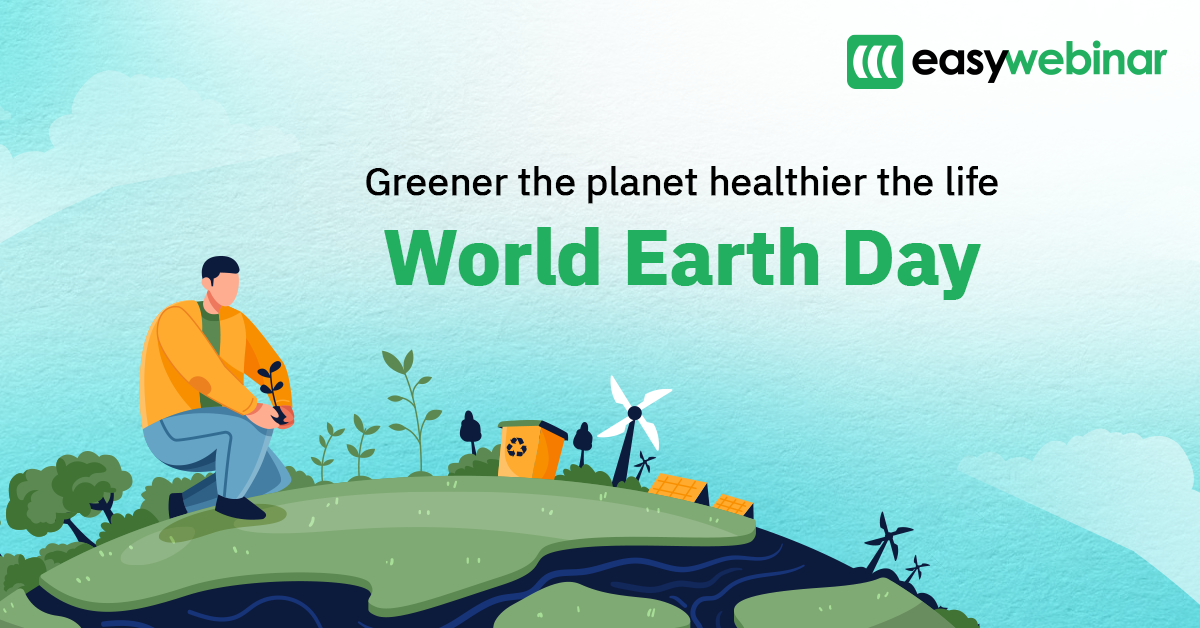Celebrating World Earth Day 2023

Every year on April 22nd, people all over the world come together to celebrate World Earth Day. It’s a day dedicated to raising awareness about the environmental issues facing our planet and inspiring action to protect it for future generations. In this article, we’ll take a closer look at World Earth Day 2023 and everything you need to know about it.
WHEN IS WORLD EARTH DAY 2023?
World Earth Day is celebrated every year on April 22nd, but this year, it falls on a Saturday. So, mark your calendars for April 22, 2023, and get ready to celebrate!
WHY DO WE CELEBRATE EARTH DAY?
We celebrate Earth Day to raise awareness about the environmental issues facing our planet and to inspire action to protect it. Earth Day was first celebrated in 1970, and since then, it has grown into a global movement that brings people together to make a positive impact on the environment.
WHAT IS THE HISTORY OF EARTH DAY?
Earth Day was first celebrated on April 22, 1970, in the United States. It was organized by Senator Gaylord Nelson, who wanted to raise awareness about the environmental issues facing the country, such as air and water pollution, deforestation, and wildlife extinction. He hoped that by bringing people together to talk about these issues, he could inspire action to protect the environment.
The first Earth Day was a huge success, with an estimated 20 million people participating in rallies and events across the United States. It led to the creation of the Environmental Protection Agency and the passage of several key environmental laws, including the Clean Air Act, the Clean Water Act, and the Endangered Species Act.
Since then, Earth Day has grown into a global movement, with people all over the world coming together to raise awareness about environmental issues and inspire action to protect the planet.
WHAT ARE SOME OF THE KEY ISSUES EARTH IS FACING AND HOW TO SOLVE IT?
Climate Change
Climate change is one of the most pressing issues. Human activities, such as burning fossil fuels, deforestation, and industrial processes, have released large amounts of greenhouse gasses into the atmosphere, trapping heat and leading to a warming planet. The consequences of climate change include rising sea levels, more frequent and severe weather events, and the extinction of many species.
Solution: To address climate change, we need to transition away from fossil fuels and towards renewable energy sources sucWCh as wind and solar. We also need to adopt more sustainable practices in agriculture and transportation, and reduce our overall consumption of goods and resources.
Deforestation
Deforestation is the practice of clearing forests to make way for agriculture, development, or other land uses. Deforestation contributes to climate change by releasing carbon stored in trees and reducing the planet’s ability to absorb carbon dioxide. It also destroys habitats for wildlife and threatens biodiversity.
Solution: To address deforestation, we need to adopt sustainable land-use practices, such as reforestation, afforestation, and sustainable forestry management. We also need to reduce demand for products that contribute to deforestation, such as palm oil and beef.
Pollution
Pollution is the release of harmful substances into the environment, including air, water, and soil. Pollution can cause a wide range of health problems in humans and animals, and it can also harm the natural environment.
Solution: To address pollution, we need to adopt more sustainable practices in industry and transportation, such as reducing emissions and improving waste management. We also need to reduce our overall consumption of goods and resources, and promote sustainable alternatives.
Water Scarcity
Water scarcity is the result of overuse and pollution of water resources. As demand for water increases, and supplies are depleted, it becomes more difficult to provide clean water for drinking, irrigation, and other uses.
Solution: To address water scarcity, we need to adopt more sustainable practices in agriculture, industry, and urban development. We also need to improve water management practices, such as rainwater harvesting, water recycling, and groundwater recharge.
In conclusion, EasyWebinar recognizes the significance of this day in reminding everyone of us about the critical challenges confronting our planet and the pressing need for immediate action. By integrating sustainable practices into our daily routines, we can collectively contribute to addressing these challenges and safeguarding our planet for the benefit of generations to come.
